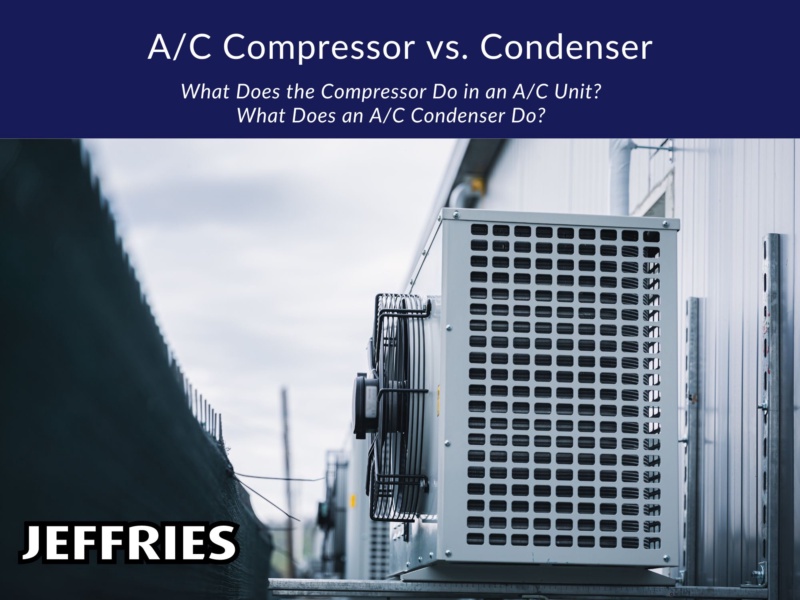Your air conditioning system works tirelessly to keep your space comfortable, but how much do you know about its inner workings? Two components — the A/C's compressor and condenser — play pivotal roles in this cooling process. When you understand these parts and their lifespan, you can make smarter decisions for your home or company's air conditioners.
What Does the Compressor Do in an A/C Unit?
The compressor is a central component in your air conditioning system, performing two main functions in the cooling process.
First, the compressor increases the pressure of the refrigerant. It takes in low-pressure, cool refrigerant gas and compresses it, which turns it into a high-pressure, hot gas. This compression is necessary for the refrigerant to effectively absorb and release heat throughout the system.
Second, the compressor circulates the refrigerant through the A/C unit. As it compresses the refrigerant, it also pushes it through the system's pipes and other components. This circulation helps the refrigerant continually absorb heat from inside your building and release it outside, creating a cooling effect. The compressor's operation is what allows your A/C unit to properly cool your space.
What Does an A/C Condenser Do?
The A/C condenser, located outside your building, transforms hot, compressed refrigerant gas back into a liquid, completing the cooling cycle. Inside the condenser, the refrigerant flows through coils while a fan blows outside air over them. This process transfers heat from the refrigerant to the outdoor air, cooling the refrigerant and changing it from a gas to a liquid. The cooled liquid refrigerant then moves to other parts of the system, where it absorbs heat from inside your building.
Without the condenser, the refrigerant would remain a hot gas, unable to cool your space effectively. The condenser's heat release and refrigerant conversion enable your A/C unit to maintain a comfortable indoor temperature.
How Long Does an A/C Compressor Last?
On average, a well-maintained A/C compressor can last 10 to 15 years. However, several factors can affect its lifespan:
-
Maintenance: Regular servicing can extend a compressor's life.
-
Usage: Heavy use, especially in hot climates, can shorten its lifespan.
-
Quality: Higher-quality units tend to last longer.
-
Environmental Factors: Exposure to harsh weather or corrosive environments can reduce longevity.
How Long Do A/C Condensers Last?
A/C condensers typically have a similar lifespan to compressors, lasting about 10 to 20 years. Their longevity depends on:
-
Maintenance: Regular cleaning and inspections are important.
-
Location: Outdoor condenser units exposed to debris, vegetation, or harsh weather may have shorter lifespans.
-
Usage: Like compressors, heavy use can lead to faster wear and tear.
-
Build quality: Higher-quality materials and construction often result in longer-lasting units.
A/C Compressor vs. Condenser
Trust Jeffries for Your HVAC Needs›
To maintain, repair, or replace your A/C compressor or condenser, you need a reliable partner. At Jeffries Plumbing Heating and Air Conditioning, we pride ourselves on serving Lamar, MO, and the surrounding community with reliable, prompt service and integrity. Whether you need routine maintenance to extend the life of your A/C components or expert advice on replacements, Jeffries is here to help keep your home or business comfortable and your HVAC system running efficiently.
